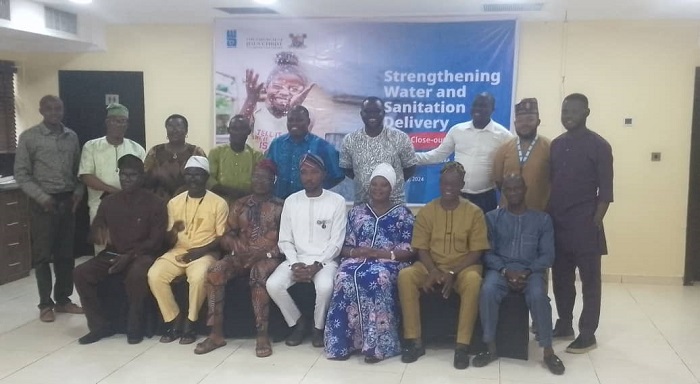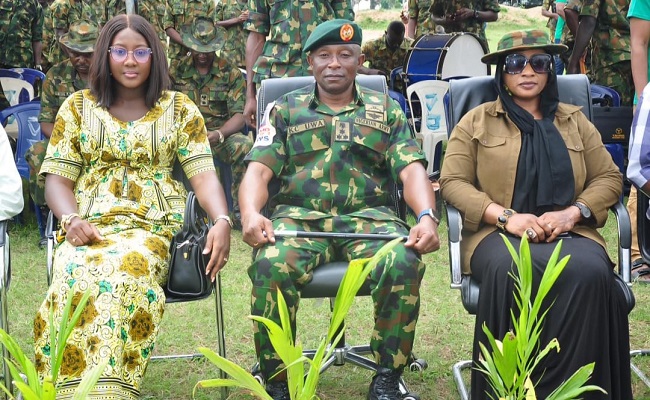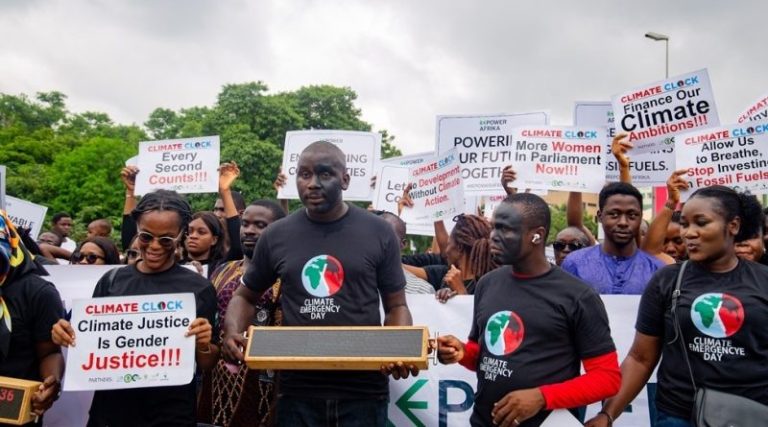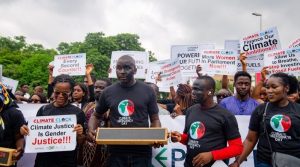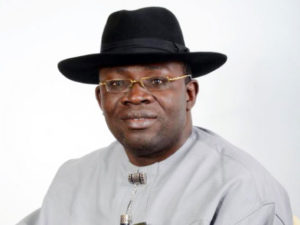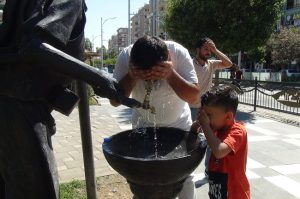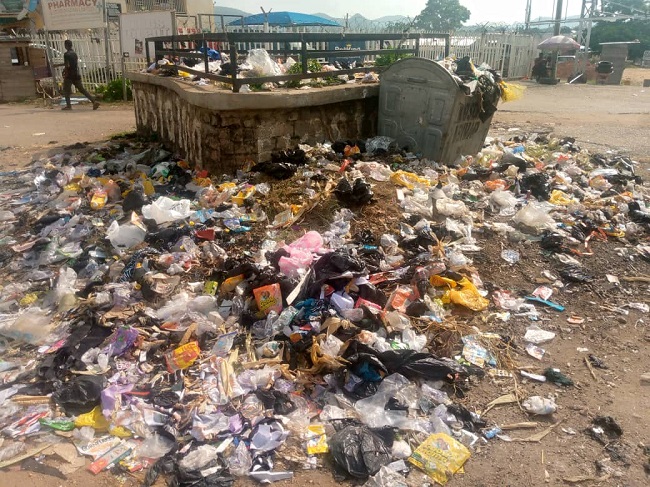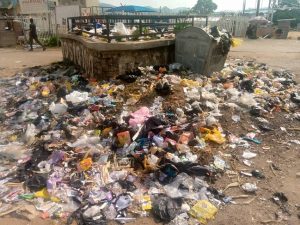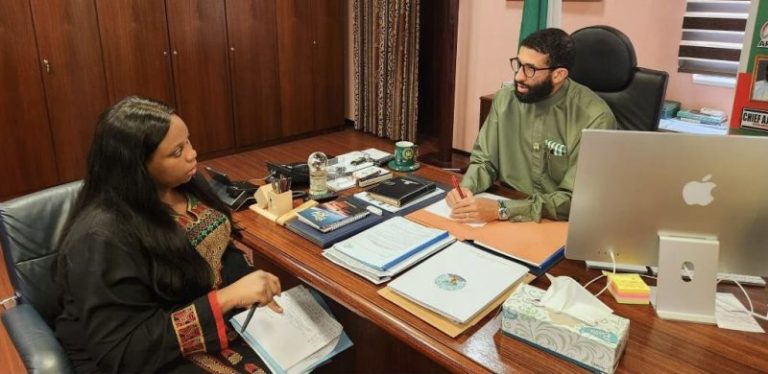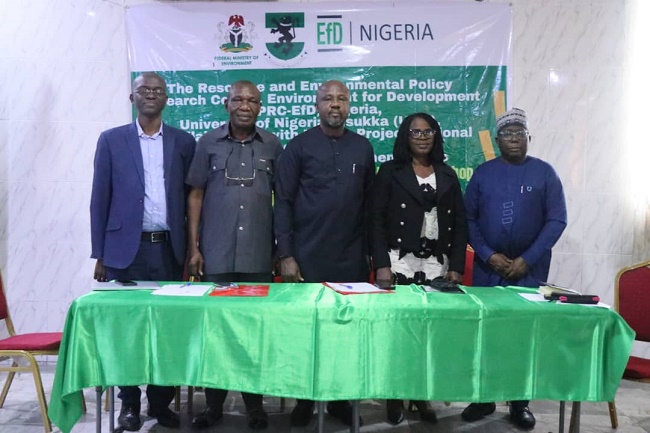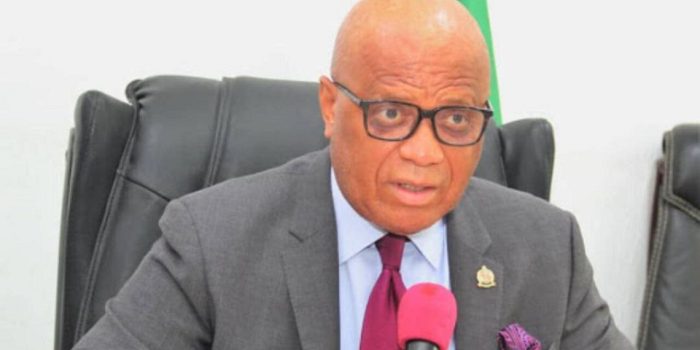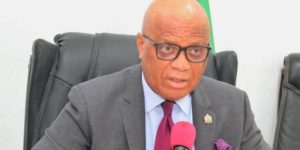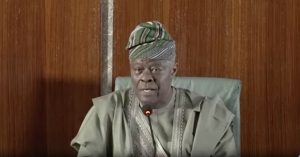WaterAid Nigeria has charged stakeholders in Ikorodu North Local Council Development Area (LCDA) in Lagos to ensure adequate and proper maintenance of the water and toilet facilities so as to encourage the donor to do more for them in the future.
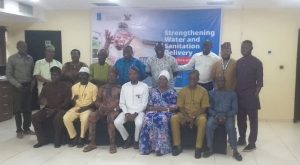
Dr. Adebayo Alao, WaterAid Lagos Programme Lead, gave the charge on Friday, July 26, 2024, during a close-out meeting marking the end of the intervention programme.
According to him, the meeting signifies that WaterAid has officially handed-over the projects to the host communities and so the responsibility of maintaining those projects is now left to them.
The Programme Lead said: “These little interventions we have done in your communities, prove to us you can sustain it, you can even prove to us that without WaterAid you can do better. So, we implore you to go back to Sabo, Orimedu, Rolu-Parafa, Idera, Itamaga and Isiwu where we have those projects and ensure that they are working perfectly.
“With WaterAid, there is still plan to do another 250 public toilets in Lagos State, the papers have already been signed. WaterAid wants to be proud and say to the government, come and see the models we have in Ikorodu and replicate such across the state, I’m sure if that happens, Lagos State Government will be proud of you as well, that can only be achieved if you are able to maintain and sustain the ones you already have in your domain.
“WaterAid has presented awards to communities in countries like Zambia, South Africa, Mozambique and so on where they exhibit that with what we provide for them they are able to sustain it by working together to improve water sanitation and hygiene in their communities. We have seen how they are taking trainings on hygiene behaviour change and applying it in their communities and how they are enjoying good health, we have seen how they are taking the water safety packs, applying it to their communities and how they are having safe water system. It is possible with you too, you can achieve it, if you want to achieve it, WaterAid will support you but let us see you take the step.
“Most importantly, I want the I want the CDC Chairman to prioritise the issue of creating WASH account, this will go a long way in assisting WASHCOM members have enough resources in maintaining the facilities because after this meeting we won’t be able to spend anything on those projects again as we will be compiling our reports to send back to our donors,” Dr. Alao maintained.
While taking an overview of the project sponsored by Later-Day Saints Charities (CHC), Mr. John Nwamuo, WASH Manager Later-Day Saints Charities, noted that WaterAid did not implement the project.
“The project was government-led, what we did was to support the government to achieve this for the donor, this is not a stand-alone project, so WaterAid is implementing a Lagos WASH programme, and we are able to attract donors into Lagos State particularly with primary focus on Ikorodu North LCDA. We are only supporting the with resources and models for government to adopt and scale-up. We are doing all these to improve access to WASH services.
“Initially, with the project that started on February 2, 2023, targeted 13,000 beneficiaries but on completion, we are able to achieve 16,000 beneficiaries including women and children across six communities including schools and PHCs.
“The projects was able to showcase models that is Standard Operating Procedure for implementing result orienting models, example is the water facilities in Rolu-Parafa and that of Idera, they are different in appearance but both of them are giving the same quality services to the beneficiaries, the same applies to the toilet facility in Isiwu Junior Grammar School and that of Sawmill in Itamaga, all this shows that regardless of the context, they are all serving the required purpose,” he stated.
In his response, Prince Adeniran Ogunbanwo, WASHCOM Coordinator and Chairman Community Development Committee in Ikorodu North LCDA, while appreciating WaterAid Nigeria for the numerous interventions in the Council promised to sustain the project for good use of the residents of the communities.
He said: “We have a team that will be moving round those facilities to liaise with WASHCOM thereby assisting them with whatever challenges that is likely to come up and if they are not living up to expectations, we have to inaugurate another WASHCOM to manage the facilities, so they have no option but to deliver.
“On the issue of opening a WASHCOM account, most of them are in the process of completing the account opening formalities, we agree that saving money for the purpose of proper maintenance and management of the facilities is the way to do and we are adopting that approach, so all the facilities provided are in save hands so it’s sustainability is utmost in our hearts.”
In his submission, Ameen Olawale Ibrahim, Vice Chairman, Ikorodu North LCDA, said: “WaterAid has really done well for us with the provision of toilet and water facilities to eradicate open defecation and also improve our sanitation and hygiene practices, it is now left for us to manage and sustain the facilities to continue enjoying it, I can assure you that we shall make good use of these facilities and they shall be proud of us.”
At the end of the session, Dr. Adebayo Alao with stakeholders in Ikorodu North LCDA selected Idera Primary School, Zumratu Primary School, Odogunyan and Erikorodo Primary School, Itamaga as the next locations to benefit from the next intervention programme by WaterAid Nigeria.
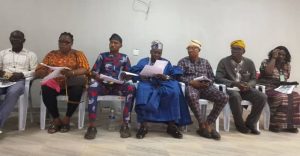
In a related development, WaterAid has launched a project titled “Ikorodu North LCDA WASH Local Investment Plan”, a project that x-rayed the intervention programmes embarked upon between February 2023 and July 2024 and the five years.
In his remarks, Godfrey Iloha, WASH Manager (Microsoft), stated that the project, sponsored by Latter-Day Saints Charities, kicked off February 1, 2023, and close by July 31, 2024.
“Within this short period, we have been able to rehabilitate facilities such as Itamaga Sawmill Sanitation Facility, Sabo Sanitation Facility, Idera Water Facility, Ita-Oluwo/Orimedu Water Facility, Rolu Parafa Water Facility and Isiwu Junior Grammar School Sanitation Facility.
“With this launch, phase one of the project is officially coming to an end and interestingly it’s also marking the beginning of the second phase of the project where we will be focusing only on schools in Ikorodu North LCDA.
“So, we develop the Local Investment Plan (LIP) for the local government to help them focus on their water facilities and what needs to be done in ensuring proper sanitation delivery among residents of the council,” Iloha said.
He noted that the aim of the project is to combine service delivery interventions with institutional strengthening for improved and sustainable delivery of WASH services to address acute needs for vulnerable populations in the communities.
John Nwamuo, WASH Manager, Later-Day Saints Charities (LDSC), in his submission hinted that “the LIP is a strategic five-year plan that will assist the local government to achieve 100% coverage of communities in Ikorodu North LCDA to have access to clean water”.
According to him, the total estimate cost of the investment plan required to address the gap in water supply across five wards in the Council through the five years spanning from 2024 through 2028 is N2, 334,640,727.00. This represents the cumulative costs required to rehabilitate 135 public water schemes at N1, 880,689,500.00, and the construction of 15 new ones in locations of need at N200, 865,495 with an average cost of N13, 931,033.00 per scheme.
Other costs identified during the stakeholder Lifecycle Costing Workshop include: Capital Maintenance Expenditure (CapManEx) at N70, 669,128.38; Operations Expenditure (OpEx) at N173, 916,603.00; Expenditure on Direct Support (ExpDS) at N5, 000,000.00; Expenditure on Indirect Support (ExpIDS) at N3, 500,000.00, within a period of five years.
All these will be achieved through: Baseline Survey and Service Level Assessment; Technical Assessment of 135 Water Points across the 5 Wards; Validation Meeting; Institutional Arrangements Mapping and Lifecycle Costing Workshop,” Nwamuo stated.
James Oyedele from Lagos State Office of Drainage Services and Water Resources in his remarks urged the LCDA to own the document by keeping it close to their heart.
He said: “This is a document that if an investor comes in tomorrow and shows an interest, you can present this document to such an investor because it is every detailed. We thank President Bola Ahmed Tinubu for championing the autonomy of LGAs in the country, so they have no excuse not to implement such projects.
“We all know that if there is no water, there is no sanitation and if there is no sanitation, health implications will arise. I urge the authority of the LGA to archive this wonderful document and make reference to it anytime the need arises.”
On his part, Niyi Odugbesi, Secretary to Local Government, opined: “The intervention of WaterAid in this local government has afforded me personally the opportunity of discovering so many abandoned water facilities in our domain here. We did an assessment plan to determine what actually happened and we found out that those moribund facilities were not properly handed over to the host communities, we even have some communities that in actual fact did not request for those facilities as at the time it was constructed and delivered to them. But with the way WaterAid is handling the process the communities are taking ownership of these wonderful facilities.
“To whom much is given, much is expected, I want to assure WaterAid Nigeria of proper maintenance and sustainability of all the projects provided for us in Ikorodu North LCDA,” he promised.
Ameen Olawale Ibrahim, Vice Chairman, Ikorodu North LCDA, however promised to work with the LIP for the good of the entire people of the council.
By Ajibola Adedoye

